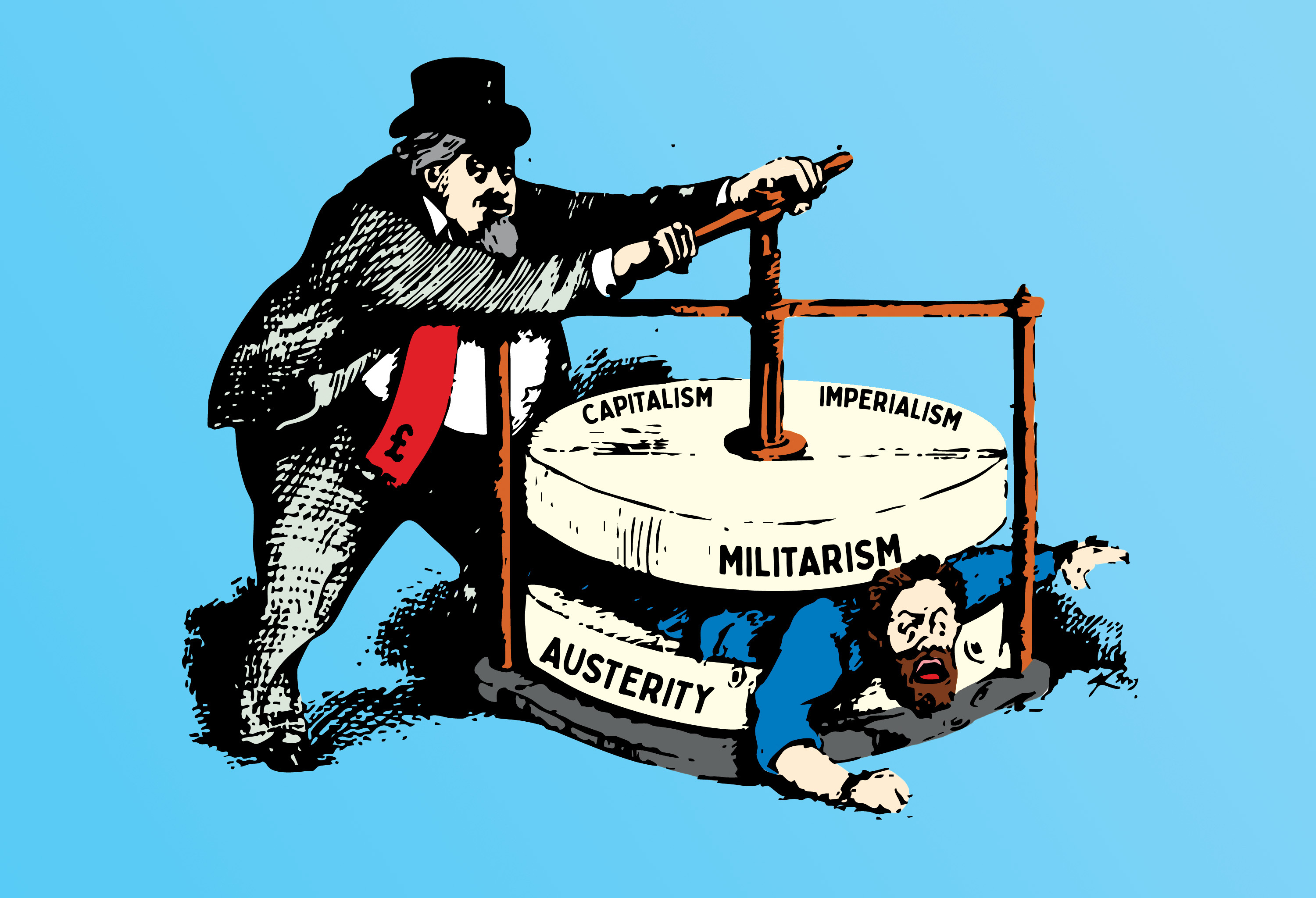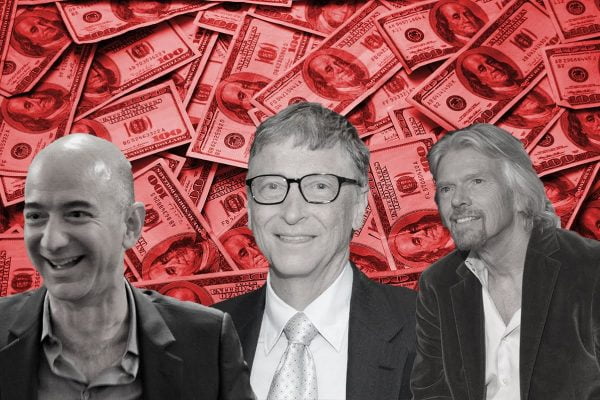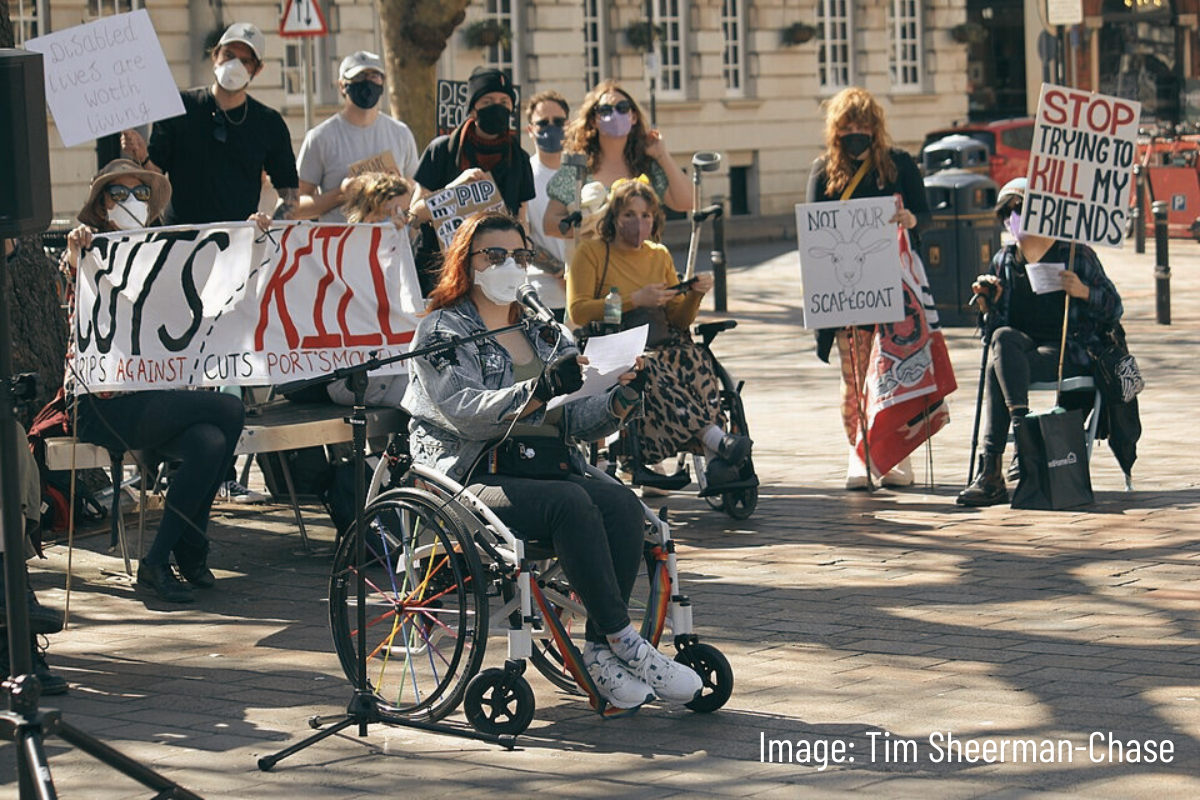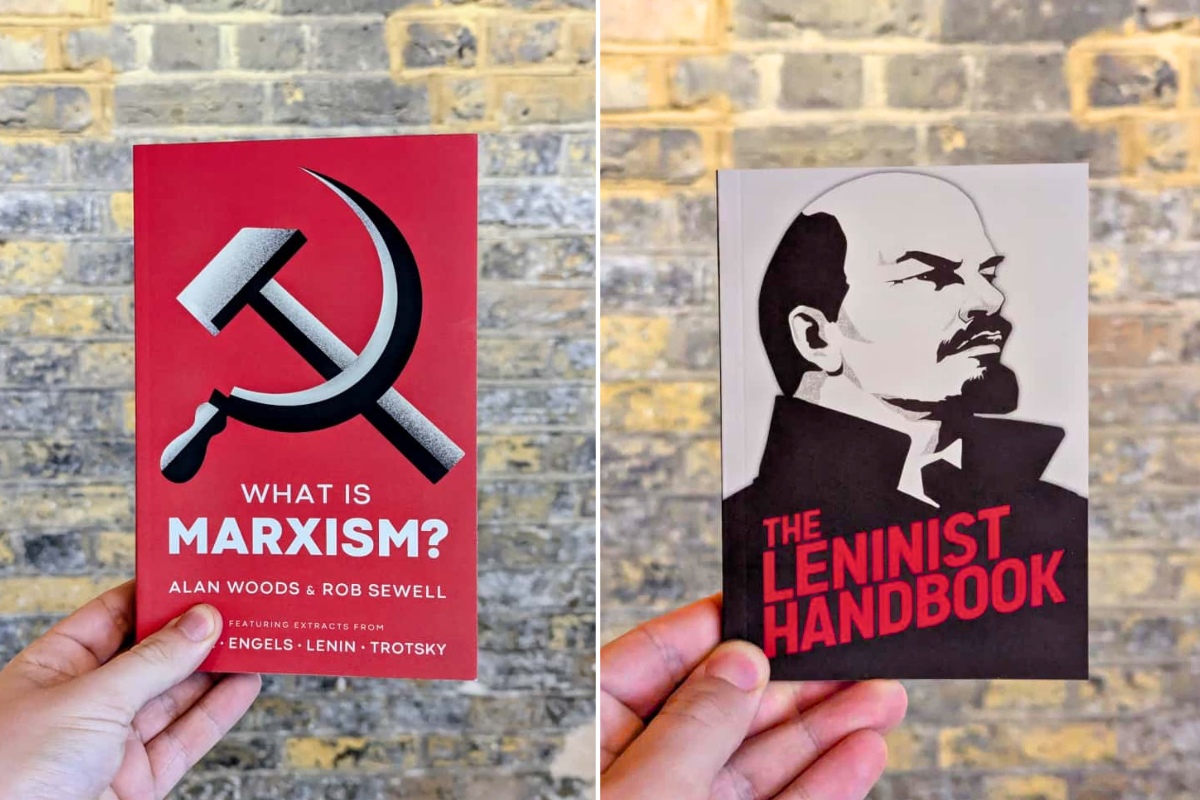Following the threat of a rebellion of Labour MPs, Starmer’s government has been forced to scale back its planned cuts to Personal Independence Payment (PIP), the UK’s main disability benefit.
Any future changes to PIP will now depend on a review led by the Social Security and Disability Minister, Sir Stephen Timms.
The government remains determined to remove as many people as possible from the benefit, however, with Timms and the Labour leaders pushing for welfare ‘reform’ under the guise of ‘helping people’ into work.
Even as they row back on PIP, the bill passed on Tuesday this week includes devastating cuts to the health component of Universal Credit.
New claimants could lose half their benefit – an attack that will hammer the most vulnerable, and drive an estimated 150,000 more people into poverty.
At the same time, the government’s decision to water down its original proposals in order to avoid a backbench revolt means that it will fall short of the £5 billion in savings it had hoped to make.
This means one thing: more attacks and cuts will be coming.
Welfare not warfare

The government claims that the current welfare system is unsustainable, and that too many people are out of work. Starmer and his ministers cynically argue that their cuts are in fact benevolent – intended to help people back into employment.
In reality, however, few of those affected will find work: not because they are lazy, but because capitalism does not make employment possible for many disabled people.
At the same time, mass layoffs across multiple sectors are making the job market increasingly competitive, even for able-bodied workers.
Most scandalously, these painful cuts to welfare come alongside Labour plans to spend more on warfare, with a pencilled increase in ‘defence’ expenditure of £13.4 billion per year.
In other words, the billions that the ruling class hope to ‘save’ – by condemning the disabled and the working class to poverty – will be used to spread death and misery around the world.
Capitalism creates disability
“Capital cares nothing for the length of life of labour power. All that concerns it is simply the maximum of labour power that can be rendered in a working day. It attains this end by shortening the extent of a labourer’s life, just as a greedy farmer snatches increased produce from the soil by robbing it of its fertility.”
Nearly 160 years later, Marx’s words ring true. For each individual capitalist, the health of their workers is secondary to the profit motive – if it concerns them at all.
“Capital takes no account of the health and the length of life of the worker, unless society forces it to do so. Its answer to the outcry about the physical and mental degradation, the premature death, the torture of over-work, is this: Should that pain trouble us, since it increases our pleasure (profit)?
“But looking at these things as a whole, it is evident that this does not depend on the will, either good or bad, of the individual capitalist. Under free competition, the immanent laws of capitalist production confront the individual capitalist as a coercive force external to him.” (Marx, Capital)
In other words, the pressure of competition forces capitalists to produce faster and cheaper than their rivals.
This objective pressure compels them to push their workers into working harder and longer, for less pay. The result is widespread injury, illness, and burnout – both mental and physical.
Previously healthy and able workers are thereby made disabled by the callous logic of capitalism, whilst the disabled are made sicker.
Sick system
The statistics speak for themselves:
- 79 percent of UK workers report experiencing burnout.
- Globally, 12 billion working days are lost each year to depression and anxiety.
- In Britain, stress, anxiety and depression account for 50 percent of work-related illness. Chronic stress – often called the ‘silent killer’ – weakens immune systems, increases the risk of heart disease, and contributes to rising obesity.
- 43 percent of people in Britain live with chronic pain, with work being a leading cause or aggravating factor.
Little has changed since Dickensian times. As Marx discusses in Capital, describing the conditions faced by workers inside the factories of his day:
“Capital oversteps not only the moral, but even the merely physical maximum bounds of the working-day. It usurps the time for growth, development, and healthy maintenance of the body. It steals the time required for the consumption of fresh air and sunlight. It haggles over a meal-time, incorporating it where possible with the process of production itself, so that food is given to the labourer as a mere means of production, as coal is supplied to the boiler, grease and oil to the machinery.”
But the damage doesn’t stop at the workplace. The pressure of capitalism eats into every area of life. Time for preparing healthy food, for rest, for exercise – these basic human needs are squeezed out by long hours, low wages, and chronic exhaustion. Healthy living becomes a luxury few can afford.

This presents a contradiction for capitalism. The capitalists as a whole need a healthy and productive workforce. Yet no individual capitalist is willing to bear the costs of higher taxation to fund decent healthcare, sick pay, and other social services.
In short, the needs of the individual capitalist to cut costs come into conflict with the collective needs of the capitalist class to draw upon an exploitable, profitable army of labour.
The consequence is a deeply irrational and anarchic system, which continually pushes down the pay and conditions of the working class, with the poorest and most vulnerable in society bearing the burden for capitalism’s crises.
Productive for profit
For those who are already disabled or unwell, the capitalist system makes no allowances.
The bosses have little interest in hiring workers who cannot work long hours, or who require accommodations and sick pay. After all, the implementation of such measures would bite into the capitalists’ profits.
Flexible shifts and hours, remote working, and ramps for wheelchair accessibility are all reasonable accommodations that many disabled people are denied, excluding them from the workforce.
Many disabled people want to work, but they are not deemed productive and employable from the perspective of capitalism: a system based on profit, not need.
What is disability?
Capitalism certainly exacerbates existing disabilities and creates new ones. However, disabled people also face real, objective, material limitations.
In recent years, it has become fashionable to rebrand disabilities as ‘superpowers’, or to focus on superficially changing the language used to describe disability.
This trend is rooted in the postmodernist idea of ‘social constructs’: the belief that categories like disability, gender, race, or sexual orientation are merely products of our collective imagination – of the ideas, ‘discourse’, or ‘narrative’ in society.
In fact, such categories and concepts are grounded in material reality. These so-called ‘social constructs’ reflect very real relations of exploitation and oppression within class society.
Altering our language does nothing to address the concrete, material barriers that disabled people face every day.
What use is ‘inclusive’ and ‘empowering’ language if you still can’t get a job, access healthcare, or find accessible housing?
Debates about whether it should be ‘person with autism’ or ‘autistic person’, for example, are a distraction from the reality that 70 percent of autistic people are unable to work under capitalism, and therefore subjected to the poverty of living off inadequate benefits.
Even under communism, if you cannot walk, that remains a disability and a limitation – one that communism could mitigate to a much greater extent than capitalism, but not eliminate entirely.
Rather than a change of mindset, what is needed is a restructuring of society to make those real physical limitations as inconsequential as possible: using the abundant resources of human knowledge and technology to develop treatments and cures to conditions that capitalism doesn’t see any profit in pursuing.
What is equality?
Communists fight for full equality in society. This includes the fight for democratic rights and freedoms for all. But it also means fighting to create the material conditions upon which genuine equality can be truly accomplished.
“Even in the most democratic bourgeois state, the oppressed people at every step encounter the crying contradiction between the formal equality proclaimed by the ‘democracy’ of the capitalists, and the thousands of real limitations and subterfuges which turn the proletarians into wage-slaves.” (Lenin, The Proletarian Revolution and the Renegade Kautsky, emphasis in the original.)
Capitalism declares that we are all formally equal. But in reality, in class society, this means the freedom for the capitalists to buy off politicians and the media; freedom merely for the working class to choose their exploiter.
Defenders of capitalism argue that communists want to treat everyone the same, while only capitalism allows for individuality.
The truth is the exact opposite: capitalism demands the same from all workers – casting onto the scrapheap those who cannot keep up with the pace of production demanded by the bosses in their pursuit of greater profits.
At the same time, capitalism allocates resources according to the logic of profit and the market. This creates artificial scarcity, limiting society’s capacity to account for the variation in both needs and abilities amongst the population.
This prevents capitalism from providing decent living standards for all, or harnessing every person’s potential.
In other words, it is capitalism that fails to recognise ‘individuality’ – that is, the real material differences between individuals.
By contrast, under communism, with a rationally planned economy, we could use the planet’s resources to meet everyone’s needs.
At the same time, on the basis of democratic, conscious planning, society – including communities and workplaces – could be organised to maximise the participation of every citizen.
Capitalism’s defenders claim that communists want to reward ‘scroungers’ who do nothing; ‘freeloaders’ who live at the expense of those who work hard.
Again, the opposite is true under capitalism: it is the parasitic bosses and shareholders who do no actual work and reap all the profits. The workers, meanwhile, perform all the labour and receive mere scraps – often insufficient to cover basic living costs.
We argue that the working class should reap the benefits of its labour. But this does not mean that disabled people who are unable to work should suffer.
Socialising domestic life
Overthrowing capitalism – and putting the working class in control of production – would allow us to reorganise society based on human need, rather than profit. This transformation would drastically improve the standard of living for all.
With the high level of technology and productive capacity available today, we could fully implement and realise the programme of the Bolsheviks from 1917 – of public canteens, laundries, childcare, housing, and education.

Even in the context of a backward and isolated Russia, these measures led to dramatic gains in literacy and women’s emancipation in a short space of time.
Under socialism, good-quality, accessible housing could be guaranteed for all. By upgrading existing homes, building more social housing, and expropriating the large landlords – alongside the half-a-million or so empty properties in Britain – we could end homelessness and rehouse those in inadequate housing.
Public canteens offering affordable, nutritious meals would free disabled people and others from relying on low-quality ready meals or expensive private carers.
Such canteens could be created by repurposing big business fast-food outlets and restaurants, and bringing them under workers’ control.
This would socialise mealtimes and make them stress-free – saving us all an hour a day in cooking, and reducing domestic labour, including the time spent on chores such as cleaning and washing up.
Socialising household tasks like cooking and laundry would reduce isolation and liberate everyone – especially women – from the burden of domestic work.
Women still do 2.5 times more housework than men, and are disproportionately responsible for caring for children, the elderly, or disabled relatives, leaving them isolated and financially dependent.
Public laundries, for instance, could save everyone around four hours a week.
Technology and work
Capitalism wastes human potential through unemployment, low wages, and backbreaking, repetitive labour.
Under capitalism, all the benefits of automation and machinery (including AI), go to the bosses. By contrast, under communism, technology would be used to liberate us – not exploit us.
By eliminating unnecessary work, automating drudgery, and employing those who wish to work in decent jobs, we could significantly reduce the working week while raising living standards.
Work would no longer be defined by stress, exhaustion, or being an appendage to a machine. Instead, human labour could focus on meaningful, dynamic tasks like problem-solving, collaboration, and creativity.
With shorter hours and greater flexibility, many disabled people could fully participate in society and the workforce, removing the stigma and alienation experienced under capitalism.
Under communism, work could be allocated based on ability and availability – not the diktats of profit-hungry bosses.
Wealth and industry

Today’s society is abundant in wealth. But under capitalism, this enriches a tiny elite and fuels war.
Billionaires increased their wealth by around $2 trillion last year. At the same time, poverty rates have remained unchanged since 1990.
The US spends $900 billion annually on defence – enough to end world hunger, provide universal clean water and sanitation, fund global education, and more.
This wealth should be used for welfare, not warfare. Production should be used to make the things that society needs, not to line the pockets of the imperialists and merchants of death.
The Lucas Plan of the 1970s showed how the arms industry could be repurposed to build socially-useful products: wind turbines, heat pumps, hybrid cars, and energy-efficient homes – all decades ahead of its time.
On the basis of socialist planning and workers’ control, such an example could be replicated across the economy, harnessing the full potential of society’s science, technology, and know-how.
Communist alternative
Capitalism pits sections of the working class against each other, framing support for the vulnerable as a zero-sum game.
In other words, the capitalists create an artificial scarcity, and then have us fight over crumbs.
This scarcity is not because productive capacity or resources are lacking, but because it is often unprofitable to utilise or distribute these where they are most needed.
As a result, for example, poverty and hunger persist, even while monopolistic food producers destroy their crops to keep prices high.
Under communism – with a rational, democratic plan of production, based on need, not profit – we could eliminate all want, poverty, and scarcity.
This would provide the material conditions to allow everyone to live comfortably; to fulfil their full potential, and actively participate in society to the best of their abilities.
On the basis of superabundance, in other words, we can bring about genuine equality, and finally realise the communist principle: From each according to their ability, to each according to their need.






